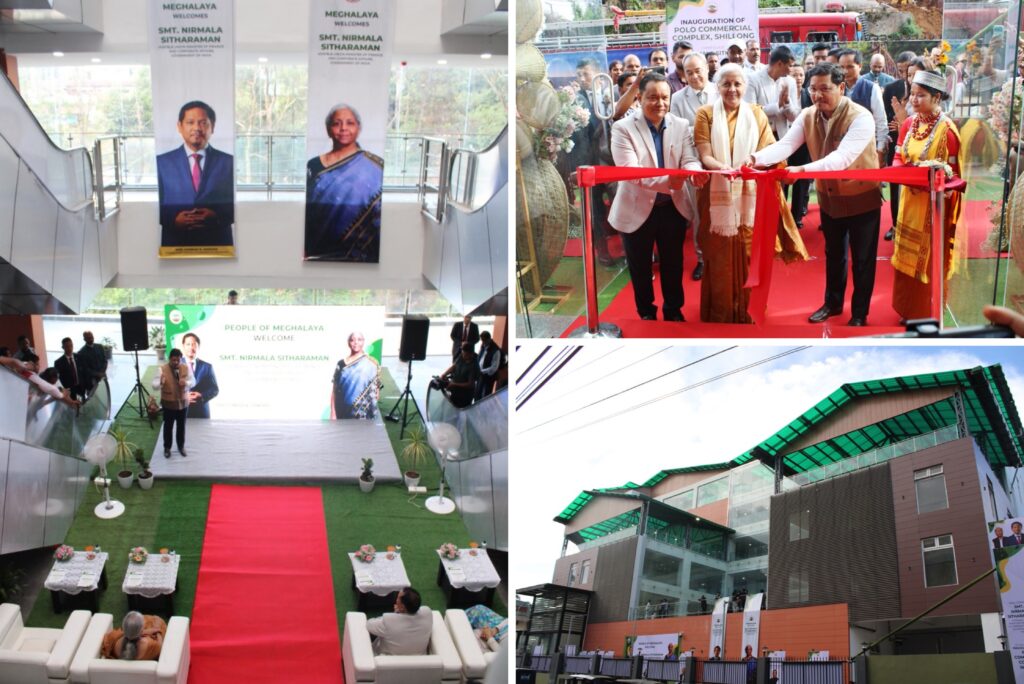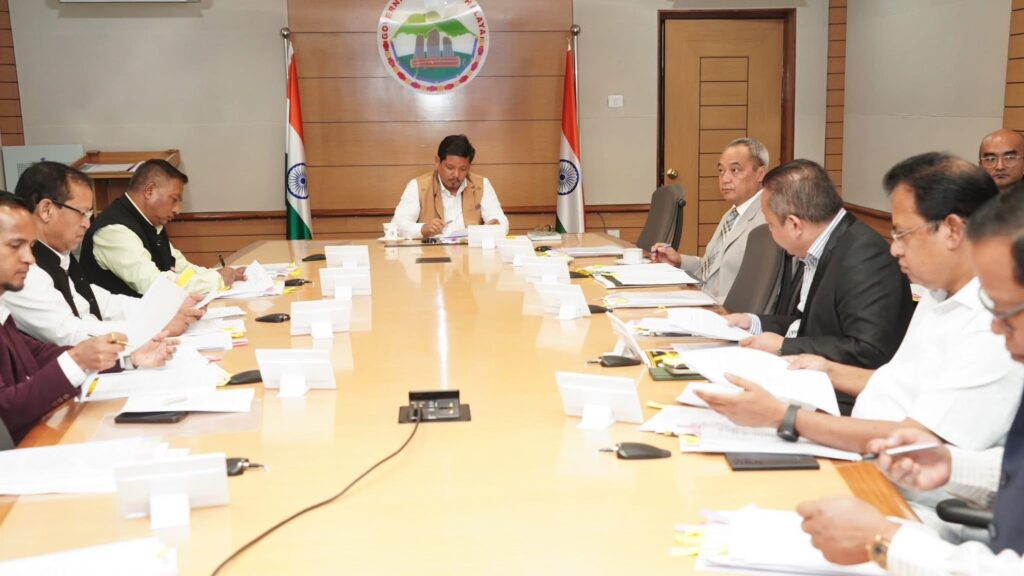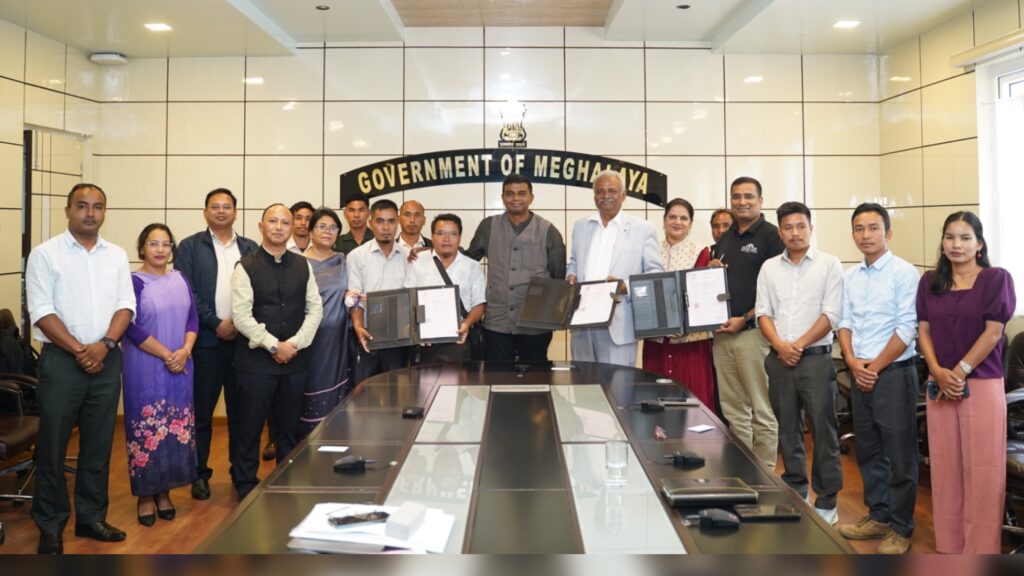Shillong, April 25, 2024 : The inaugural session of the First Regional Conference on Health in Northeast India commenced today at Martin Luther Christian University (MLCU), under the theme “Advancing Health Equity: Bridging the Gaps” organised by the National Lutheran Health and Medical Board (NLHMB) in collaboration with the Department of Allied Health Sciences, Nutrition and Dietetics, MLCU, and the Indian Institute of Public Health, Shillong. The conference aims to bring together researchers and civil society people to address pressing health issues in the region.
The morning session commenced with a warm welcome address by Dr Glenn C Kharkongor, Executive Director of NLHMB and Chancellor of MLCU. Dr Kharkongor’s speech set the tone for the event, emphasising the importance of collaborative efforts in advancing healthcare equity in Northeast India.
Following the welcome address, Dr. Larilin Kharpuri, Chairperson of the conference, provided an overview of the conference objectives, highlighting the significance of the discussions to be held over the next two days.
The Chief Guest, Mr Sampath Kumar IAS, Principal Secretary of Health and Family Welfare, Government of Meghalaya, graced the occasion with his presence and shared valuable insights into the government’s vision for healthcare in the region.
One of the key challenges in the state and the region as a whole is the geographical terrain and accessibility. He added that in Meghalaya, there are more than 400 villages which can be reached only by foot and more than 1200 villages can be reached through a four-wheel drive only in non-monsoon season.
He stressed the importance and role of the traditional health healers especially the Traditional Birth Attendants (TBAs). He reminded that the TBAs were left out of the health system from 2005 onwards with the implementation of the National Rural Health Mission because of the importance given to institutional delivery. He necessitated the approach of local solutions for local problems and informed that the government at present is working with the TBAs in giving them the required training. He further added that there is a need to build technical capacity in Meghalaya for efficient delivery of healthcare services and the government is taking steps towards that. While speaking on the approach of implementing policies and schemes, he suggested that “there is a need to restore the purpose for those working in the community and look at what can be achieved”.
Speaking of the state of Meghalaya, he informed that earlier Meghalaya used to lose 25 crore every year due to low immunisation coverage, which has subsequently improved. He mentioned that a few years back, the maternal mortality rate in Meghalaya was very high and that efforts of the Government to improve pregnancy and child health outcomes have resulted in a drastic reduction in maternal mortality. He also highlighted that the Government of Meghalaya allocates 9% of the budget to health, the highest in the country demonstrating the commitment of the Government in improving the healthcare delivery in Meghalaya. He urged for collective efforts by the researcher, practitioners and policymakers to bring about positive change in the health care system.
Following the inauguration, the conference delved into substantive discussions on various health-related topics. Highlights from the morning sessions included presentations on the epidemiology of malaria in Meghalaya, cancer incidence in Sikkim, and food safety practices among street food vendors in Shillong.
Dr. Caleb Harris, Additional Professor and HoD of Surgical Oncology at NEIGRIHMS, shed light on the challenges of out-of-pocket healthcare expenditure, emphasizing the need for policy interventions to mitigate financial burdens on patients.
The day ended with a panel discussion on “Vaccination in Meghalaya: challenges and solutions”, which was moderated by Kong Patricia Mukhim, Editor, The Shillong Times.Panellists included Dr Sandra Albert, Director, Indian Institute of Public Health, Shillong, Ms Mayfereen Ryntathiang, Founder and President, Grassroot, Shillong, Dr Valerie J Laloo, Public Health Specialist, State Immunization Cell Cum State Surveillance Officer (IDSP) and Dr Glenn C Kharkongor, Chancellor MLCU. The discussion touched upon various challenges and solutions were proposed. Pointing that it is a long overdue discussion, Ms Mayfereen welcomed the opportunity for deliberation on this important topic. She suggested that one of the solutions could be the social financing option which can help improve the immunisation rate and stressed the act of consent rather than an act of fear by the community. Dr Valerie Laloo listed challenges of immunisation which included literacy level, communication skills by the health providers and financial situations of the households. She informed that Meghalaya, at present, has85% full immunisation coverage. Dr Sandra spoke about the trust issues related to healthcare access and mindset change. She reiterated the importance of communication skills at the community level. Dr Glenn highlighted the importance of key members in the community which include the TBAs and the religious leaders who can actively help promote immunisation in the community. He further added that the crucial person for immunisation is the mother. Kong Patricia reminded that the Rangbah Shnong (headmen) and the politician can perhaps participate actively in this endeavour.
The conference will continue tomorrow with further sessions focusing on innovative approaches to healthcare delivery and equitable health outcomes in Northeast India.








